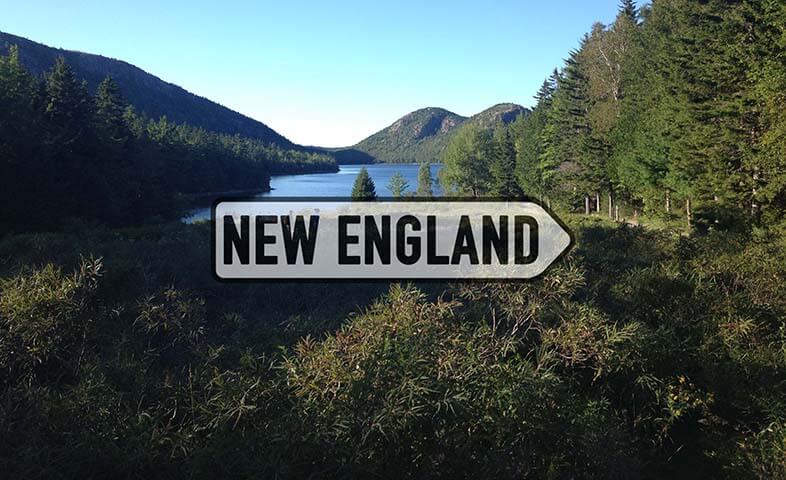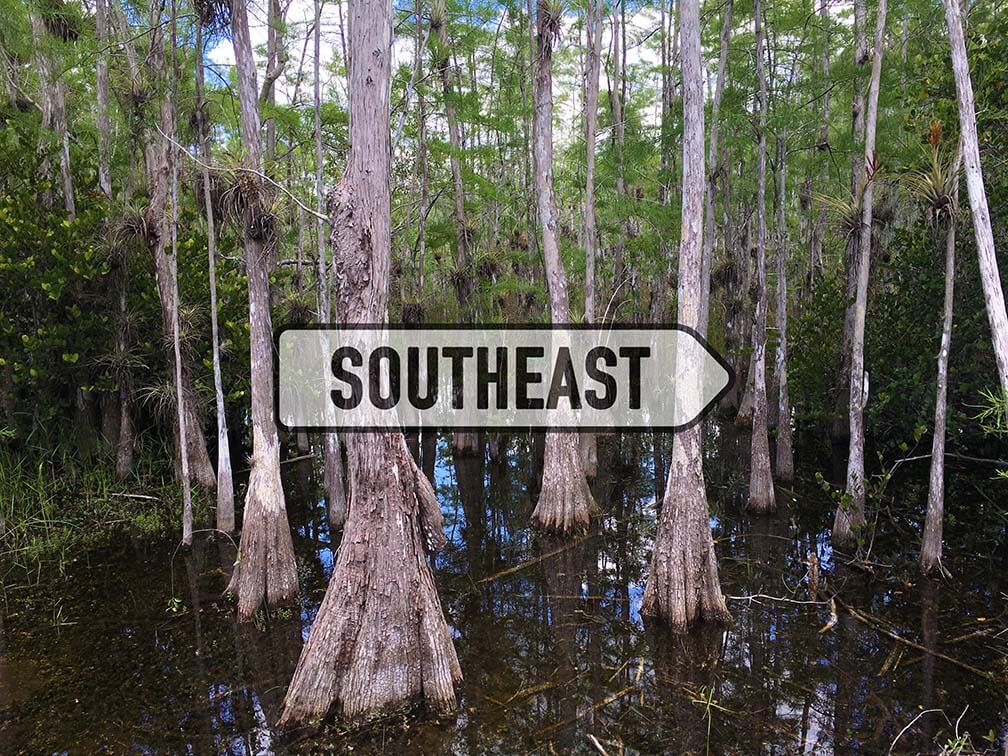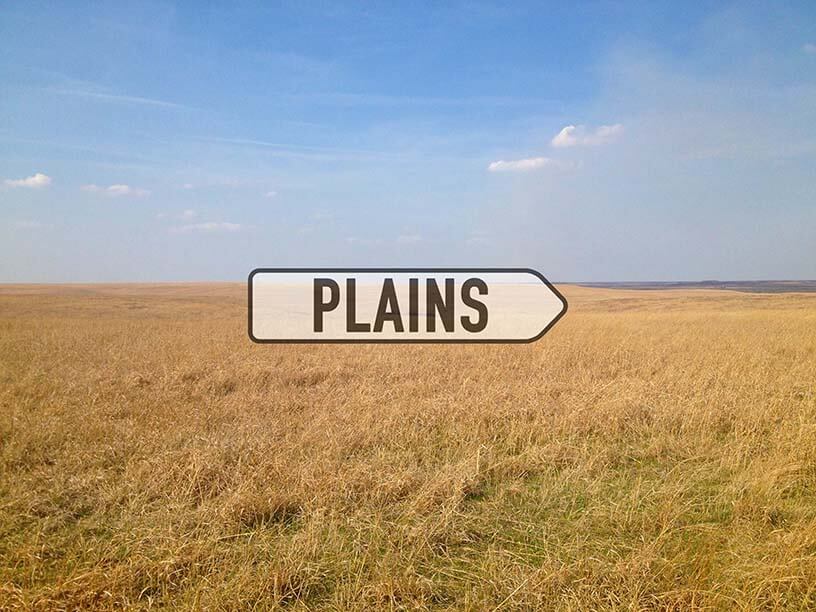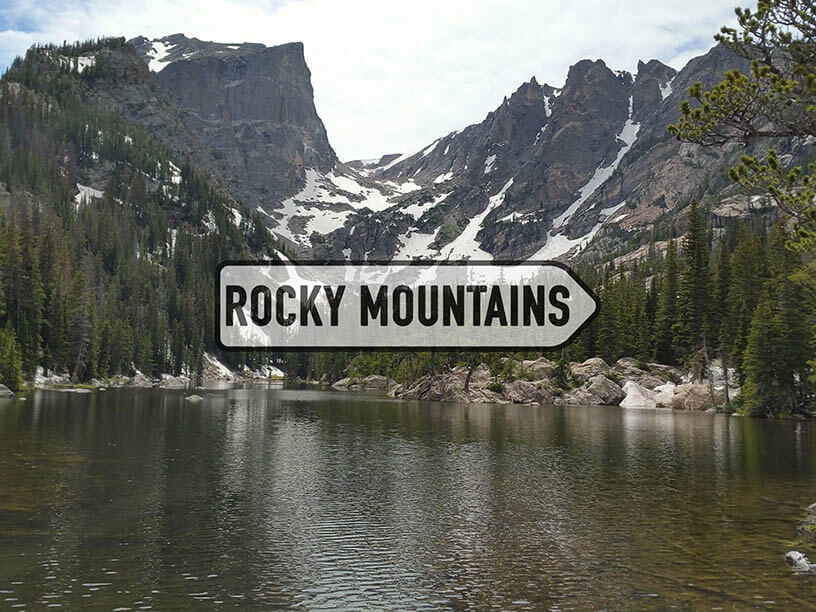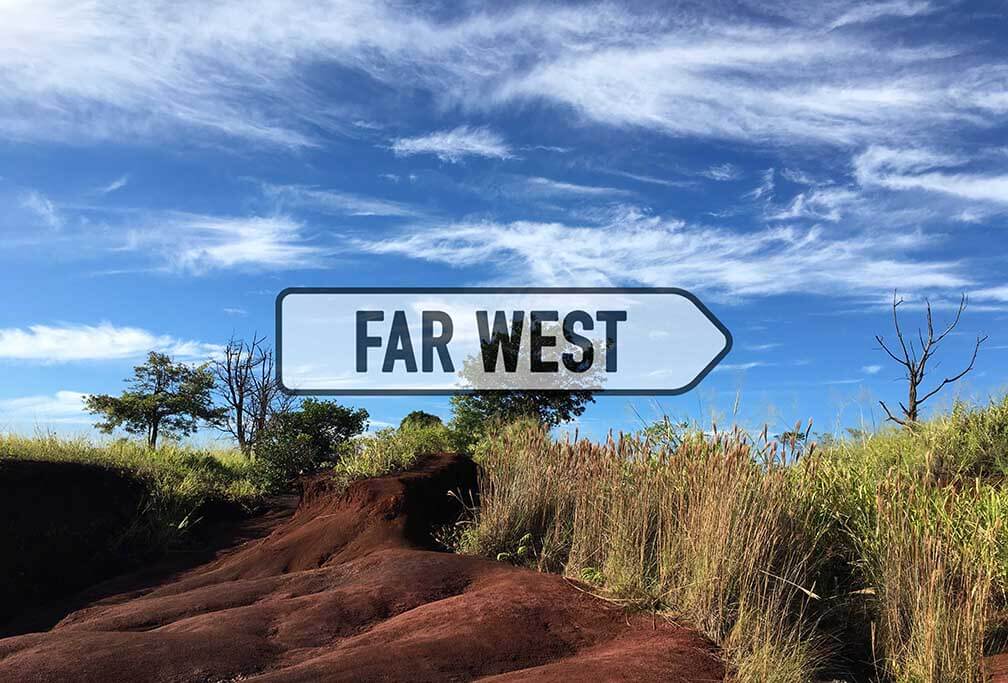Hiking Uphill
By Mary Ardery
I hear a heavy thud and the bright ringing of a metal pot hitting rock. I turn to see Ava, the newest client, running. “I’m on it!” my co-guide Connor shouts from the back of the line. He drops his pack and chases her down the mountain we’ve been diligently climbing. Still within sight, she slows. She laces her hands on top of her head and paces the narrow trail in tight circles. There is a drop-off to one side, a sturdy row of tulip poplar trees lining the other.
“I can’t fucking do this!” I hear her yell to all of Nantahala National Forest.
I don’t blame her. The Appalachian Mountains are estimated to be 480 million years old; their inclines are worn-down and slow to climb in North Carolina’s humidity. Sunlight dapples this section of trail, but we are about to enter one of many rhododendron tunnels, where the waxy, opaque leaves sometimes block the sun so thoroughly they turn a sunny day to dusk. An older client turns to me. “Well, I guess we should take lunch?”
When I applied to work as a wilderness therapy guide, I had no experience in the mountains or in mental healthcare. At twenty-two, I was also younger than most of the clients. Luckily, this rehab-in-the-woods had a learn-as-you-go mentality. Baptism by fire in the quadriceps. Baptism by backpacking.
Pisgah National Forest, North Carolina, photo by Ken Thomas.
We are finishing our tuna packets and handfuls of trail mix when Connor and Ava rejoin the group. Someone hands her a peanut butter and jelly tortilla. She sits atop her reclaimed pack and nibbles at the oozing calories. “Are we at least halfway?” she asks.
I pull out the map and decide to lie. “Somewhere around there.”
In an accusatory tone, another client asks me if we’re lost. I explain that checking the map is responsible—preventative—but Ava squeezes her eyes closed. “I’m the one who wants to be here,” she says to herself.
Hours of start-and-stop hiking ensue. When we reach camp late afternoon, Ava rests against a tree, and because it’s her first day, the group lets her sit while someone digs the loo, two clients go for water, and another throws the rope where we’ll hang our food at night.
To cook, we move down the dirt trail to avoid attracting critters to our sleeping area. We passed many “Bear Sanctuary” signs today. The pot balances on the wobbly camp stove set just off the trail’s edge. We’ve forgotten the big metal spoon this week so tonight’s cook scrapes the bark off a stick and uses it to stir the pasta. Before eating, we have a hand wash and “gratefuls” circle. Connor is the last to share. “I’m grateful Ava stayed,” he says. Everyone nods in agreement. I fill my cup and sit criss-cross beside Ava. She stirs the powdered Alfredo sauce more thoroughly into her noodles as she bites her lower lip and fidgets with the metal ring pierced through it.
“You lied about being halfway, didn’t you?”
“Yes,” I admit.
She nods, considers this, says “thank you,” and begins eating. We still have a few hours before dark. Though we’ve gained about 2,000 feet in elevation since morning, the June foliage is so thick we saw few views during the hike. I glance toward the treetops now, and even up on the ridge there is little sky visible beyond the branches and leaves.
***
Photo by David Whelan / CC 2.0
During my first week guiding, I slept in a “burrito” for a night. A burrito’s purpose is to save a person from herself. We’d hiked out of Pisgah National Forest because of an unstable client and retreated to a primitive cabin near base camp outside of Asheville, North Carolina. At bedtime, the client at risk of suicide slid into a tarp while my co-guide and I flanked her cocoon on the musty cabin’s wooden floor. If she were to get up in the night, the rustling tarp would wake us. As I tried in vain to fall asleep, I remember thinking the job would be too much for me. I felt relief, but only briefly, when the therapist transferred the client to a higher level of care in the morning; a year’s worth of clients were ahead of me. Silently, I recited Wendell Berry’s words: I come into the peace of wild things / who do not tax their lives with forethought / of grief.
***
Connor and I check in each night after I administer meds to Ava and the others. Though I’m the lead guide and he’s the assistant, he’s older and just a few credits shy of his Masters in Social Work. I value his feedback about the day and always trust his opinion, but this first night of the week I cut our check-in short because I’ve promised the clients a bedtime story.
“Wow,” he says, “you really just don’t stop.” I laugh it off, but I’m flattered. “I like doing it,” I say, as I head to the client tent, Jerry Spinelli’s Stargirl in hand. It is the story of a quirky girl who stays true to herself despite the pain it sometimes brings—a girl who understands that, “the earth is speaking to us, but we can’t hear because of all the racket our senses are making.” The clients and I adore her.
***
Early on, a seasoned client gave me tips as I learned fire-making, one of the skills required for assistants to transition into lead guides. “Here, hold it like this,” he said, taking the metal striker from my hand. Following his example, I struck ribbed edge against quartz rock, and sure enough, sparks! “Keep going!” he said. Many sparks later, one landed in my char tin. He coached me as I blew a tinder bundle into flames. An ember landed near my eye and burned a temporary teardrop into my skin. “Guys, look at Mary—she killed a dude,” he joked.
Small moments like these brought me back each eight-day shift.
Nantahala National Forest, photo by Mary Ardery.
One day during Ava’s first week, the trail leads into a swampy open area. We trudge through thick mud. Flies buzz around our ankles. The direction we’re supposed to head is blocked by a wall of briars. I walk the length of it, hoping to find an overlooked path. Nothing. “Wait here,” I say. “I’ll scout ahead. With my hiking stick, I bushwhack through thorns. I don’t find a blaze, but I eventually discover what must be the overgrown trail. I shout to the group and get no reply, so I plow back through and lead everyone onward “I feel like a wilderness BAMF,” I say later at camp, baring my cut-up arms.
“And those blisters!” Ava points to my sandaled feet. My heels are raw and bloody from breaking in a pair of boots.
“No, that’s just embarrassing,” I say.
“Yeah,” another client chimes in. “Noob status.”
“Well, at least your boots are sturdy!” Connor says. He’s wrapped a piece of parachute cord around his boot to keep his left sole from falling off. I laugh. “We’re a motley crew, huh?
***
Regularly, I witnessed clients in withdrawal. They screamed expletives, threw rocks, and intermittently refused to hike. Their understandable frustration put me on edge, though the shouting often gave way to tears. “It sucks,” I once heard a co-guide commiserate. “The good news is, you don’t ever have to feel this way again.” There was no truer consolation, and I remembered her words to share with future clients.
The night before guide exchange, I walk several paces from the fire pit to avoid the group’s chatter while I distribute meds. I sit on my rolled up foam sleeping pad and call the clients over one at a time. Ava’s last. She sits on the ground beside me. “I hope you work with us again,” she says.
“I hope so, too.” I count her pills and add, “They usually put me with the women.”
Then, sitting there on the trail in the darkness, she tells me about her past. I listen, letting her share as much as she needs. It’s not the first time a client has revealed her abuse; it won’t be the last.
“I don’t know how my parents didn’t realize. Like, how fucked up is that? It’s not normal for a kid to be that scared to go to bed.”
“No,” I agree. I feel helpless. Sad. A little nauseated.
“I still can’t sleep well.”
The other clients have told me how she talks in her sleep: No! Please—don’t. I ask if reading helps.
“A little. But they don’t let you have books here.” The moon is just bright enough that I can see her drawing shapes in the dirt with the sharp edge of a rock.
“Do you want to borrow Stargirl?”
“Can I?”
“I don’t see why not. Just for tonight.” I turn on my headlamp to hand her the weathered paperback. Though it’s technically not allowed, I remember the advice my boss once passed along: When in doubt, be human. “Ava,” I say. “Thanks for being open with me. I hope you know you didn’t do anything to deserve what happened.” She smiles a wan smile in the headlamp’s red glow. The trees tower behind her.
“Thanks for this,” she says, holding up the book, then walking to the tent.
At the end of that shift, I am spent. Beyond exhausted. I realize the weeks that feel most meaningful take the strongest toll. The group’s therapist teaches me the term vicarious trauma. She talks about compassion fatigue and the importance of self-care. I understand better than ever why most guides cannot stay beyond their year-long commitment.
***
Van with muddy and wet shoes after a hike, photo by Mary Ardery.
Weeks later, a new client sits on the trail and pounds her fists into the dirt. Blonde ringlets frame her face in the humidity.
“Come on, Lucy, you got this!” Ava shouts. Lucy just glares until Ava walks down and joins her. She says, “I was like this, too, my first week.” Lucy looks doubtful. “No, really,” Ava insists. “Ask Mary.”
“Oh yes,” I say with a laugh. “You should’ve seen it. I heard that pot hit the ground—” I clap my hands, “—and I knew we were in trouble.”
“So how’d you do it?” Lucy demands.
Ava shrugs. “I don’t know, but it gets easier.” She offers a hand and Lucy takes it, groaning.
On Ava’s last day, everyone hugs her goodbye and tells her to be safe. She’s on her ninth life—says so herself. The SUV drives away, and we watch Ava’s arm out the window, her hand forming the rock on sign. The colorful strands of her bracelets flutter in the wind, and then she’s gone.
I’ve added her share of the group gear to my own pack. It’s noticeably heavier so I yank my hip belt tighter. I turn to the trail without a word, knowing the group will follow me off the gravel Forest Service road and into the rhododendron tunnel. At camp, gravity suctions my pack to the ground. That poor metal pot hits rock once again, and I hear the sound of an uphill battle. It summons the faces—my own included—of all those who wanted to quit but decided to keep hiking.
Mary Ardery holds a BA in English Writing from DePauw University. After living and working in the Blue Ridge Mountains in Asheville, North Carolina for two years, she has returned home to the Midwest to pursue her MFA at Southern Illinois University.







